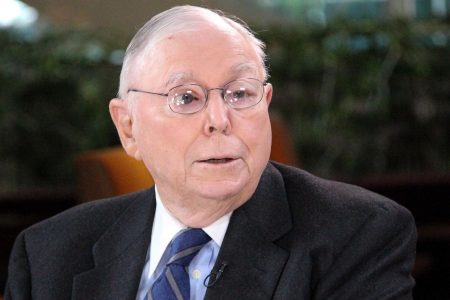A Family Office is a private entity that serves ultra-high-net-worth individuals (UHNWI). The term was coined by the family of J.P. Morgan in 1838 and later popularised by Rockefellers. According to Family Office Exchange, there were approximately 6,000-7,300 Family Offices in the United States of America (USA) in 2019. As the popularity of Family Office grew, it is believed that this number has grown exponentially throughout the years.
From the composition, and compensation to investment preference, this article explores what a typical Family Office would look like in the birthplace of the concept of “Family Office”, the USA.
Typical composition
According to our research conducted for the Global Family Office Compensation Benchmark Report, we found that while most (35%) of USA Family Offices have 5 or fewer employees, around 23% of them have 15 or more. Even though this was not reflected in the survey responses, from our years of experience in the Family Office space, we found that Family Offices in the USA tend to be more institutionalised and professionalised. They often have much bigger teams and manage more functions in-house than other Family Offices globally.
Additionally, we found that only 10% of the Family Office CEOs in the USA are family members, which is the lowest globally. The high involvement of non-family professionals has further proven the level of professionalisation in the region. According to the survey, 74% of the Family Office professionals in the USA are males, and the percentage of male CEOs is slightly higher, at 87%. In terms of gender diversity, while it is better than other regions, we believe there is still room for improvement in the USA.
Family Offices are scattered around the country, but you may find the majority of them in New York City. As the financial centre of the USA, New York is home to 34% of the Family Offices in the country, followed by California (18%) and Texas (16%).
The most mature and professionalised
The research conducted by the Sovereign Wealth Fund Institute shows that the top five largest Family Offices ranked by total assets are all based in the USA. This is echoed in our report, where we found that 48% of the Family Offices in the USA manage over 3 generations of wealth, which is much higher than the other relatively mature markets such as the United Kingdom (20%). Additionally, the majority (63%) of the Family Offices in the USA have operated for over 10 years. Further accentuating the maturity of the USA Family Office space.
We believe its maturity and level of professionalisation are also well reflected in the compensation of Family Office executives in the region. As we discussed in our another Forbes article before, we found that the compensation in USA Family Offices is on the top end compared to Family Offices in other regions. It is on par with large investment firms, or even higher in some instances. Notably, Chief Investment Officers of Family Offices are found to be the most well-paid in the USA where they commonly receive over USD$1M as their base salary. In contrast, CIOs in the UK typically take home £198k–264k (~USD$252k-337k) and most European CIOs receive €158k–198k(~USD$172k-216k).
Investment preferences
The UBS Global Family Office Report 2023 found that Family Offices in the USA have the highest allocation to alternative asset classes such as Private Equity (24%), Real Estate (21%) and Hedge funds(10%). Interestingly, the allocation to Real Estate is particularly higher than the global average of 13%.
According to the North American Family Office report 2022, 81% of American Family Offices identified investment risk as the biggest risk factor for their Family Office. It is very clear that American Family Offices are utilising alternative assets to diversify their portfolios and to spread the risks away from public markets.
It is also noted that while 37% of American Family Offices are now engaging in sustainable investing, it is still much lower than their counterparts in Europe (66%) and Asia-Pacific (42%). With more discussion surrounding sustainable and impact investment in the Family Office space, it is anticipated that the number will continue to rise in the next couple of years.
Philanthropic initiatives
Philanthropy plays an important part in the Family Offices in the USA. The North American Family Office Report 2022 points out that 75% of American Family Offices provide philanthropy-related services in-house.
Reportedly, 86% of American families give philanthropically, which is higher than the global average (82%), with an average annual donation of USD$15.4 million, as compared to the global average of USD$11 million in 2022. The most common way of participating in philanthropic activities is through their private foundations. The majority (76%) of American Family Offices facilitate philanthropic investments directly through foundations. The report also found that most American Family Offices support education (87%) in their philanthropic initiatives. This is followed by economic and social impact (66%), healthcare (59%) and the environment (44%).
The most well-known American philanthropic foundation is perhaps the Bill & Melinda Gates Foundation. The foundation of the former richest man in the world is a grant-making foundation that supports initiatives in education, health and population. It holds $69 billion in assets and was reported as of 2020 to be the second-largest charitable foundation in the world, only second to Novo Nordisk Foundation based in Denmark.
Regulatory oversight
Due to the growing institutionalisation of Family Offices in the USA, Family Offices are increasingly being subjected to regulatory oversight. This means they need to adhere to relevant financial and securities laws, depending on the structure and services they offer. We have recently covered the impact of the Corporate Transparency Act on American Family Offices. We highly recommend Principals who seek to set up or expand their Family Offices into the USA to familiarise themselves with the regulatory framework and hire in-house legal counsel and compliance professionals to assist the Family Offices in their operation in the region.
Read the full article here















